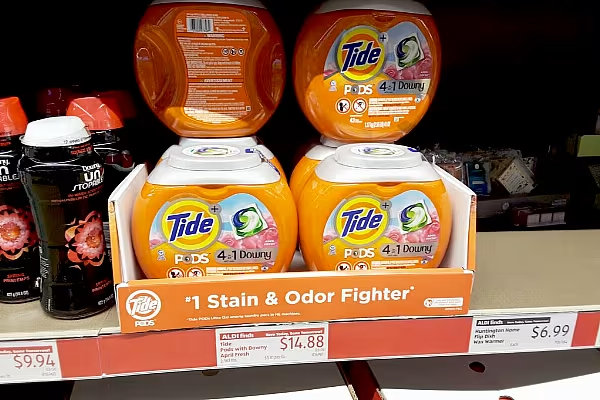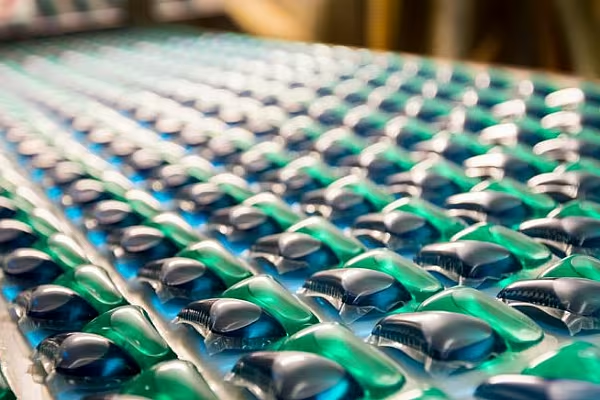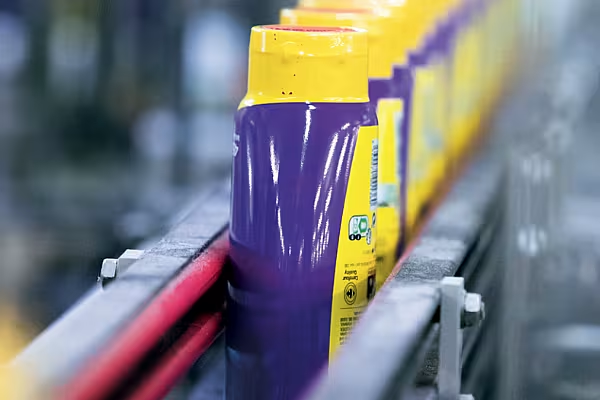After two years of price hikes on detergent, U.S. consumers may finally get some relief as Procter & Gamble deepens discounts on Tide, one of its biggest brands, according to a Reuters analysis of NielsenIQ data.
Makers of consumer products like P&G, a bellwether for the industry, are relying more on discounting to stay competitive as shoppers look to cheaper alternatives to stretch their budgets.
The costs of ingredients and inputs for consumer goods, like pulp and fuel, are falling in some cases, allowing manufacturers to ease up on price hikes and offer more promotions, while retailers including Walmart Inc are also pushing suppliers to cut prices.
Milder inflation could be welcome for investors and consumers after a period of fast-rising prices led to steep interest rate increases by the U.S. Federal Reserve.
Reversal In Strategy
The new discounts are a reversal from last year and during the pandemic, when demand kept up for household goods despite double-digit price increases. For P&G, which reports results on Friday and has tried to avoid discounting what it calls its superior products, it shows its more-affluent consumers may be facing financial stress.
The Cincinnati-based company sold more products across its portfolio of Gillette shaving cream and Old Spice deodorant at a discount from the fall through March, according to a Reuters analysis of NielsenIQ data in Jefferies research notes.
The amount the company sold with price promotions ticked up in 12-week periods ending in early December through the end of March compared to the same time the prior year.
Discounts ramped up significantly on its costlier detergent pods like Gain flings! and Tide pods, according to the data.
It also heavily discounted its tissue and toilet paper brands, the data shows, where consumers are likely to trade down to store brand competitors. Fabric and family care, which includes the paper products, are among the company's biggest businesses.
Even with more promotions, competitors have nabbed market share from P&G in its liquid detergent and pod categories, and in toilet paper and paper towels, according to separate data from asset management firm AllianceBernstein.
A P&G spokesperson declined to comment.
'Promotional War'
Executives said in February on the sidelines of an industry conference that the company was not in danger of getting into a "promotional war" with competitors, according to a note summarizing a private discussion between the company and Wall Street analysts.
They said that they would rather spend on research and development, or on building brand-name recognition, than on promotion, "every day of the week," according to the note.
To be sure, P&G is offering fewer discounts than it did prior to the pandemic, the data shows, which is the case with many makers of household and pantry staples, as they have found most consumers can and will pay more.
P&G's margins, a key sign of profitability investors closely watch, could take a hit if the company continues with heavier discounts.
"If there’s more discounting, there’s more headwinds for margins," said Tom Mullarkey, senior equity research analyst at Thrivent, a P&G investor.
Still, competitors are moving in lockstep with P&G.
“We’ll follow the category lead,” said Alison Whritenour, the CEO of Seventh Generation, rival Unilever PLC’s environmentally-friendly brand of household products. “Tide is who we would benchmark, and we’re seeing more discounts with them, and the category at large among bigger players.”
Whritenour added that discounts are now deeper and more competitive.
Seventh Generation Power+ liquid laundry detergent is 15% off through big box retailer Target Corp's Circle loyalty program.
ShopRite, with grocery stores spanning from Maryland to Connecticut, is offering a $4 digital manufacturers' coupon on Tide pods, for a discounted price of $23.24.
Trading Down
Market research firm Circana is forecasting discounts will continue to grow this year across household products as consumers face a darkening economic situation.
Circana found consumers are ditching more expensive premium products in categories like razors, detergent and paper towels that they frequently bought during the pandemic, another factor leading to heavier discounting.
Consumers, for example, have ditched liquid laundry detergents for the cheaper powders, the firm found.
It also observed that discounts were not having the same effect on total sales that they once were - mainly because even with discounts, basic goods still are much pricier than they were only recently.
"We were surprised with promotions, that consumer response is muted," said Alastair Steel, an executive for client engagement at Circana. "As prices are going up so quickly, people just go think 'What's a good price?'"
"It's taking a while to adjust" to higher prices, he said.
News by Reuters, additional reporting by ESM – your source for the latest A Brands news. Click subscribe to sign up to ESM: European Supermarket Magazine.














